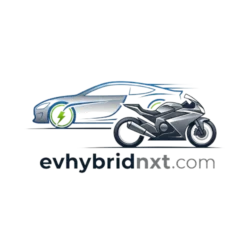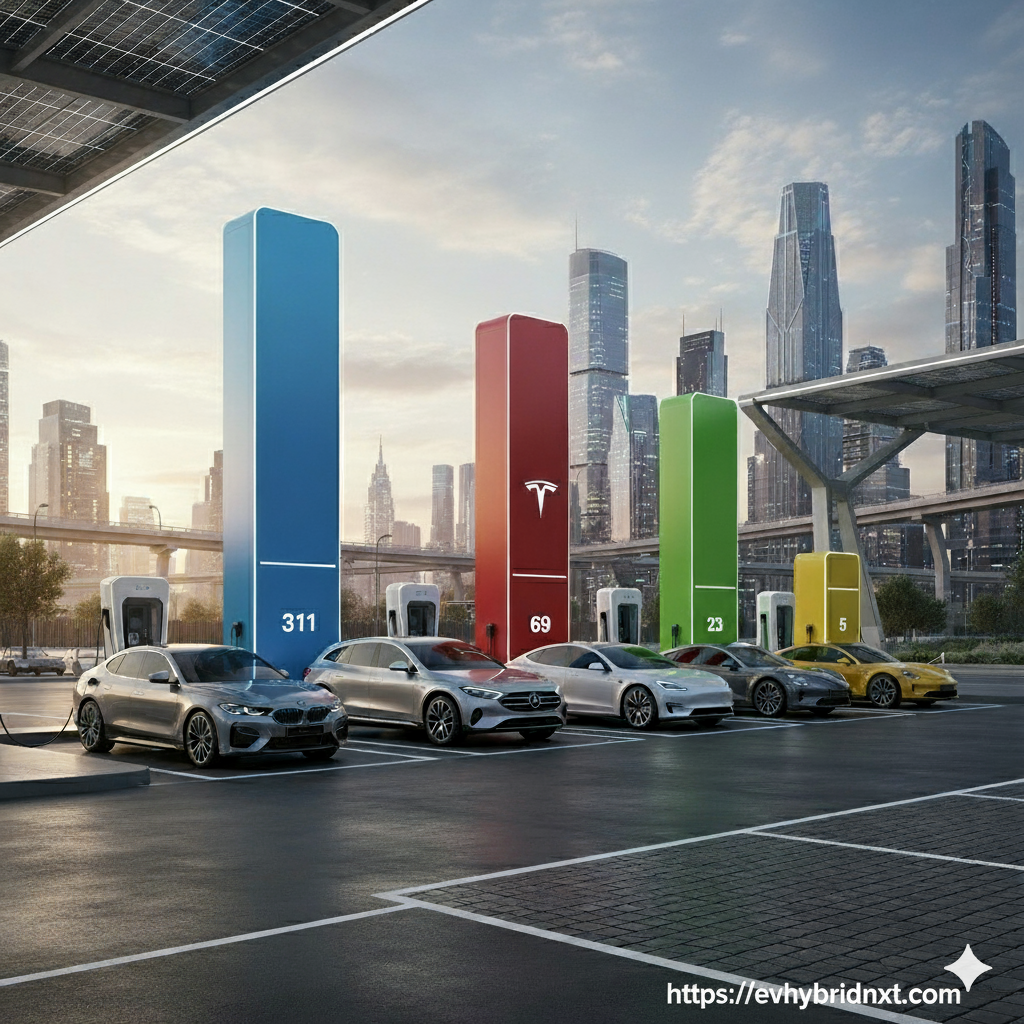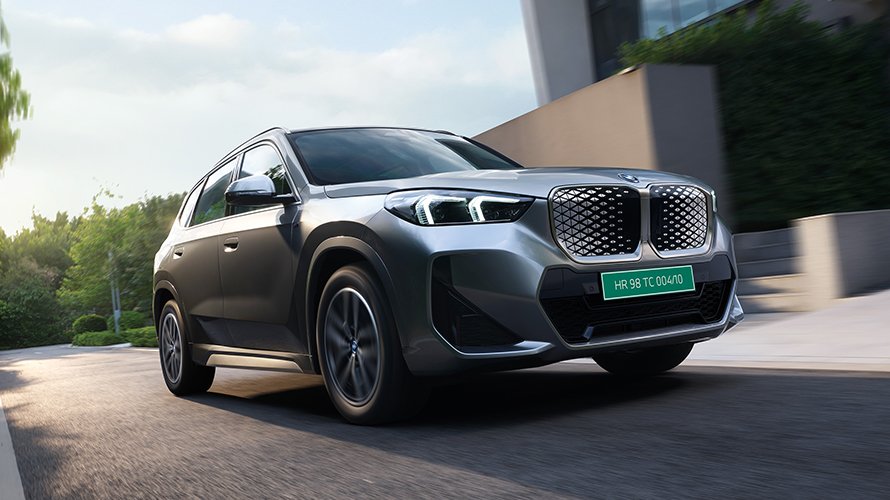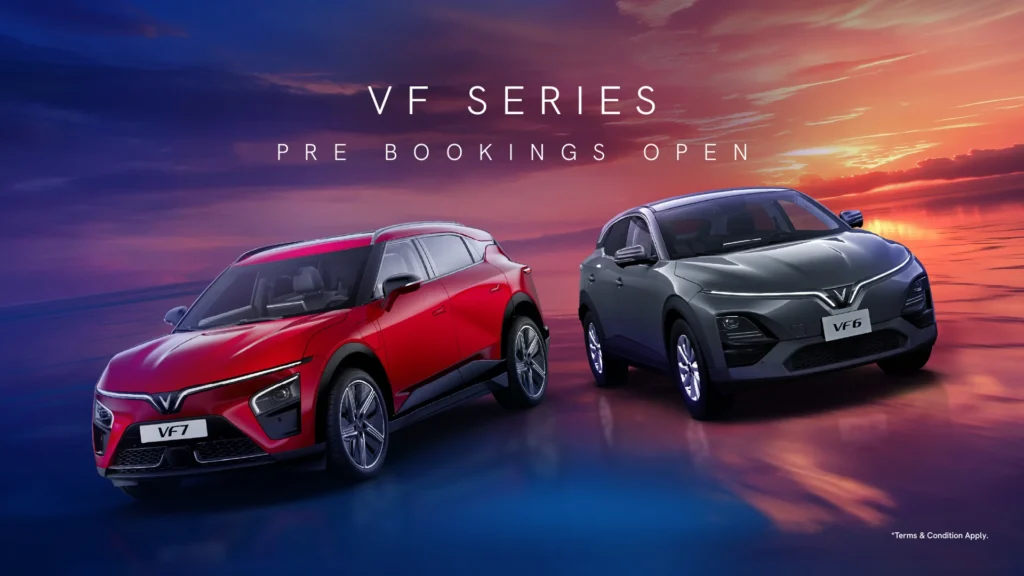India’s luxury electric vehicle (EV) segment is accelerating at breakneck speed, blending global innovation with local aspirations. In September 2025, the market witnessed a tale of established dominance and exciting newcomers, as BMW solidified its throne while Tesla stormed in with flair. Amid a slight industry-wide dip in EV sales—attributed to recent GST reductions on internal combustion engine (ICE) vehicles that temporarily shifted buyer sentiment—the premium space bucked the trend with resilient demand for sophisticated, zero-emission rides.
With urban elites prioritizing sustainability, performance, and status, the luxury EV arena clocked notable volumes, setting the stage for fiercer rivalries ahead.
BMW Leads the Charge with Triple-Digit Sales
BMW has cemented its position as the undisputed market leader in the luxury EV space, registering a commanding 311 units sold in September 2025. This performance, though a marginal dip from August’s 393 units, highlights the brand’s successful strategy in India, appealing to customers who prioritize a blend of cutting-edge technology, superior driving dynamics, and premium brand prestige.
BMW’s comprehensive electric portfolio, which includes popular models like the iX1—continuing to draw huge volumes with its blend of sporty handling and up to 440km range—and the i7 flagship, has clearly resonated with discerning Indian luxury car buyers.
Placing it far ahead of its nearest competitors, BMW’s EVs now contribute significantly to its overall sales, underscoring a maturing ecosystem of charging infrastructure and buyer education that’s turning skeptics into evangelists.The German marque’s edge lies in its holistic approach: not just hardware, but a seamless ownership experience with over-the-air updates, dedicated EV showrooms, and a growing network of fast chargers. As India’s EV penetration inches toward 7-8% in passenger vehicles, BMW’s triple-digit hauls signal that luxury buyers are ready to electrify their garages, even as broader market growth cools slightly post-GST tweaks.
Tesla’s Impactful Entry Secures Third Spot
The month of September marked the much-anticipated first full month of sales for Tesla in the Indian market, and the brand wasted no time in making an impression. Securing the #3 position on the sales chart, Tesla delivered 69 units—primarily the versatile Model Y SUV—demonstrating the power of its iconic design, high-performance specifications, and unparalleled global brand reputation.
Despite being a relatively new entrant with a limited initial rollout in key metros like Mumbai and Delhi, Tesla’s direct-to-consumer model and technologically-driven appeal have enabled it to carve out a significant presence, underscoring the strong pent-up demand for the brand in India.
Since its July launch, Tesla has racked up over 600 bookings for the Model Y, priced starting at around Rs 65 lakh, with deliveries ramping up swiftly in September.
The American disruptor’s allure—think Autopilot-assisted highway cruises, a minimalist cabin with a 15-inch touchscreen, and a claimed 533km range—has captivated tech-savvy professionals and early adopters. Trailing leaders like BMW (311 units) and Mercedes-Benz (95 units), Tesla’s 69 sales outpaced Volvo’s 22, proving that Elon Musk’s vision translates potently to Indian roads, where range anxiety and charging woes are easing with policy support.
The Bigger Picture: A Competitive Landscape Heating Up
Slotting in behind Mercedes-Benz, which clocked 95 units buoyed by hits like the EQS and EQE, Tesla’s debut adds rocket fuel to the luxury EV race.
The top three—BMW, Mercedes, and now Tesla—account for the lion’s share of premium EV volumes, reflecting a segment that’s outpacing the mass market in adoption rates. Yet, challenges loom: a proposed tax panel’s call for steeper levies on luxury EVs could hike prices by 10-15%, potentially denting momentum for high-end imports like Tesla’s.
On the flip side, BMW’s localized assembly efforts and Tesla’s planned Gigafactory explorations signal long-term bets on India. With overall electric car sales dipping 16% month-on-month to around 20,000 units amid festive caution, the luxury tier’s stability—up 148% year-on-year—hints at premium buyers’ immunity to short-term fluctuations.
European Rivals Maintain a Steady PaceWhile the headlines were captured by BMW’s lead and Tesla’s debut, other premium European manufacturers recorded steady sales, contributing to the segment’s overall momentum:
- Mercedes-Benz secured the second position, delivering 97 units. Mercedes-Benz continues to cater to a clientele that values traditional luxury, superior comfort, and a wide array of electric models.
- Volvo demonstrated a consistent presence with 23 units sold, reinforcing its reputation for safety and sustainable luxury.
- Porsche rounded out the top five, registering 5 units, catering to the ultra-luxury, high-performance niche within the EV segment.
| Rank | Brand | Units Sold (Sep 2025) |
|---|---|---|
| 1 | BMW | 311 |
| 2 | Mercedes | 97 |
| 3 | Tesla | 69 |
| 4 | Volvo | 23 |
| 5 | Porsche | 5 |
The Broader Trend: Luxury Embraces Electrification
The September 2025 figures are indicative of a broader, irreversible shift in the Indian automotive landscape. Luxury automakers are increasingly positioning electrification not as a future goal, but as a present opportunity and a core part of their premium offering. As consumer preferences evolve toward sustainable mobility without compromising on performance or luxury, the EV segment in India is poised for exponential growth, with these early leaders setting the pace for what’s to come.
Charting the Future: Electrified Luxury Awaits
As October unfolds with Navratri buzz, expect Tesla to scale deliveries and BMW to unveil updates, keeping the luxury EV narrative electric. India’s affluent are voting with their wallets for greener prestige, and with infrastructure investments pouring in, September 2025 feels like the spark for a full-throttle revolution. BMW may rule today, but Tesla’s entry ensures tomorrow’s roads will be a high-stakes showdown of innovation and allure.



